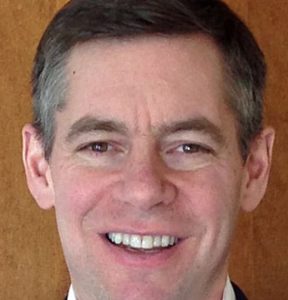EP 763 Israel and Hamas: How is the Conflict Trending?
 Aaron Stein, president of the Foreign Policy Research Institute(fpri.org), shares his insights with us on the Israel-Hamas conflict. With as many critical issues affected by it, first and foremost the lives of the hostages and citizens on both Israel and Gaza, we wanted to find an expert to help us to better understand these turbulent and fast-changing events. For example, is the long negotiated U.S.-Saudi Arabian mutual security pact moving forward or in jeopardy? And will Israel join in this pact with Saudi Arabia to go along with long held treaties with Egypt and Jordan? Given that this would require a path toward a two-state solution is the Netanyahu coalition interested in that? What will the impact of this conflict be on President Biden and his re-election chances? We discuss all this and more on today’s podcast.
Aaron Stein, president of the Foreign Policy Research Institute(fpri.org), shares his insights with us on the Israel-Hamas conflict. With as many critical issues affected by it, first and foremost the lives of the hostages and citizens on both Israel and Gaza, we wanted to find an expert to help us to better understand these turbulent and fast-changing events. For example, is the long negotiated U.S.-Saudi Arabian mutual security pact moving forward or in jeopardy? And will Israel join in this pact with Saudi Arabia to go along with long held treaties with Egypt and Jordan? Given that this would require a path toward a two-state solution is the Netanyahu coalition interested in that? What will the impact of this conflict be on President Biden and his re-election chances? We discuss all this and more on today’s podcast.
Podcast: Play in new window | Download
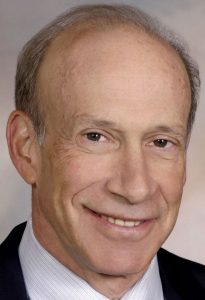 The U.S. Senate has particular Constitutional responsibilities and political duties. As the deliberative body it is meant to check the impulses of a more rambunctious House of Representatives, confirm judicial appointments, ratify treaties and, when necessary, act as the jury in the event of the impeachment of the President or Cabinet officials. Ira Shapiro, Senate scholar, former staffer and U.S. Trade Ambassador, focuses on the impeachment responsibility in his updated version of “The Betrayal: How Mitch McConnell and the Senate Republicans Abandoned America,” recently released. In a blistering indictment of his own, Shapiro assigns principal blame to Mitch McConnell, the Republican Minority Leader, considered by Shapiro and others to be the most powerful Senate leader in history, for the opportunity he let pass to convict former President Donald Trump after his second impeachment. Trump’s election denialsim led to a mob insurrection at the U.S. Capitol on January 6, 2021. While the U.S. Senate, by 2022, was functioning well enough to pass major pieces of bipartisan legislation, questions remain about the body’s ability to function effectively in these turbulent political times.
The U.S. Senate has particular Constitutional responsibilities and political duties. As the deliberative body it is meant to check the impulses of a more rambunctious House of Representatives, confirm judicial appointments, ratify treaties and, when necessary, act as the jury in the event of the impeachment of the President or Cabinet officials. Ira Shapiro, Senate scholar, former staffer and U.S. Trade Ambassador, focuses on the impeachment responsibility in his updated version of “The Betrayal: How Mitch McConnell and the Senate Republicans Abandoned America,” recently released. In a blistering indictment of his own, Shapiro assigns principal blame to Mitch McConnell, the Republican Minority Leader, considered by Shapiro and others to be the most powerful Senate leader in history, for the opportunity he let pass to convict former President Donald Trump after his second impeachment. Trump’s election denialsim led to a mob insurrection at the U.S. Capitol on January 6, 2021. While the U.S. Senate, by 2022, was functioning well enough to pass major pieces of bipartisan legislation, questions remain about the body’s ability to function effectively in these turbulent political times.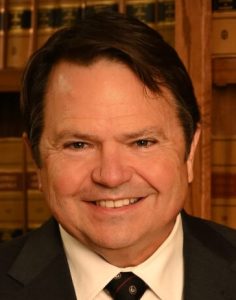 When Alvin Ridley’s wife was discovered dead in their home, residents of the small town of Ringgold, Georgia assumed the recluse, hoarder, and odd fellow naturally murdered her. His difficulty in communicating what took place added to the conclusion many had drawn about his guilt. As it turns out, they were proven wrong in a court of law, thanks to the interesting, often contentious, bond that developed between our guest, McCracken Poston, Jr., Ridley’s lawyer, and the defendant. Poston’s new book, “Zenith Man: Death, Love, and Redemption in a Georgia Courtroom,” was many years in development as he analyzed what happened then in relation to the better vantage point he now has decades later. While Poston juxtaposes his own struggles at the time personally and professionally the more complicated puzzle involved Ridley’s adult autism, not understood back then, and the rare condition that led to his wife’s death. Many people today still fall through the cracks of the criminal justice system because of autism and mental illness. The case may have been settled satisfactorily, and mental health is given greater parity today with physical conditions, but the crisis of undiagnosed or misdiagnosed developmental conditions persists in the criminal justice system.
When Alvin Ridley’s wife was discovered dead in their home, residents of the small town of Ringgold, Georgia assumed the recluse, hoarder, and odd fellow naturally murdered her. His difficulty in communicating what took place added to the conclusion many had drawn about his guilt. As it turns out, they were proven wrong in a court of law, thanks to the interesting, often contentious, bond that developed between our guest, McCracken Poston, Jr., Ridley’s lawyer, and the defendant. Poston’s new book, “Zenith Man: Death, Love, and Redemption in a Georgia Courtroom,” was many years in development as he analyzed what happened then in relation to the better vantage point he now has decades later. While Poston juxtaposes his own struggles at the time personally and professionally the more complicated puzzle involved Ridley’s adult autism, not understood back then, and the rare condition that led to his wife’s death. Many people today still fall through the cracks of the criminal justice system because of autism and mental illness. The case may have been settled satisfactorily, and mental health is given greater parity today with physical conditions, but the crisis of undiagnosed or misdiagnosed developmental conditions persists in the criminal justice system.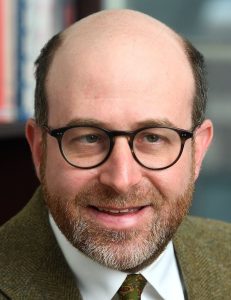 While our parties may only from time to time have lived up to the mission of truly organizing our political discourse and developing serious nuts and bolts efforts toward major transformations that benefit our society. Yet when they have, the impact had been remarkable. So says today’s guest Daniel Schlozman and Sam Rosenfeld, political scientists and co-authors of “The Hollow Parties: The Many Pasts and Disordered Present of American Party Politics.” In the book they point to two such seminal moments in our modern history. They argue that today Democrats and Republicans are both failing us in a period of hyper partisanship that has modern roots in the 1970’s. In ways, para-political groups, or ‘party blobs’, as they call them, have assumed many of the activities previously attended to by parties. And these SuperPAC’s, think tanks, and media hosts are entwined with parties but they are not actually a part of them. So, were we better off in the days of smoke-filled backrooms and party bosses? We will discuss all of this today on the podcast.
While our parties may only from time to time have lived up to the mission of truly organizing our political discourse and developing serious nuts and bolts efforts toward major transformations that benefit our society. Yet when they have, the impact had been remarkable. So says today’s guest Daniel Schlozman and Sam Rosenfeld, political scientists and co-authors of “The Hollow Parties: The Many Pasts and Disordered Present of American Party Politics.” In the book they point to two such seminal moments in our modern history. They argue that today Democrats and Republicans are both failing us in a period of hyper partisanship that has modern roots in the 1970’s. In ways, para-political groups, or ‘party blobs’, as they call them, have assumed many of the activities previously attended to by parties. And these SuperPAC’s, think tanks, and media hosts are entwined with parties but they are not actually a part of them. So, were we better off in the days of smoke-filled backrooms and party bosses? We will discuss all of this today on the podcast. The Rascals had a song out years back called ‘How Can I Be Sure’? And while those lyrics pertained to love, the same question could, and should, be posed today about the media content you are devouring from a range of sources–legitimate and sketchy. The ability to discern which is which gets harder by the day as content is vomited out in quantities that are staggering. Our guest, Nolan Higdon, is a prolific writer and lecturer on the topic of media literacy in this baffling age. He has authored a number of books to help us become a model media citizen. In his view we need to answer several question about what we read and see: is the content journalism? who is publishing the content? What is the evidence? And there are others. What you are about to listen to is a wide ranging discussion of what’s available in this evolving, perhaps unraveling, digital media landscape and how you should prepare yourself to consume it.
The Rascals had a song out years back called ‘How Can I Be Sure’? And while those lyrics pertained to love, the same question could, and should, be posed today about the media content you are devouring from a range of sources–legitimate and sketchy. The ability to discern which is which gets harder by the day as content is vomited out in quantities that are staggering. Our guest, Nolan Higdon, is a prolific writer and lecturer on the topic of media literacy in this baffling age. He has authored a number of books to help us become a model media citizen. In his view we need to answer several question about what we read and see: is the content journalism? who is publishing the content? What is the evidence? And there are others. What you are about to listen to is a wide ranging discussion of what’s available in this evolving, perhaps unraveling, digital media landscape and how you should prepare yourself to consume it.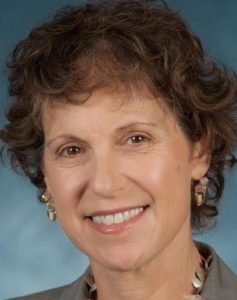 To those of us who stopped thinking about the inherent risks in our banking system after the meltdown of 2007-2009, exemplified by the collapse of Lehman Brothers, and assumed that Dodd-Frank legislation had corrected all of our problems, it might be time to think again. Except for extraordinary government interventions over a weekend in 2023, two ‘tech’ banks were on verge of collapse. That action forestalled a disaster that could have spread throughout the banking industry. Had it, there was no way that the government could have provided a sufficient backstop for the entire sector. In truth, the new regulations have not made the financial system resilient. Much has been papered over by flawed accounting and Federal Reserve support. Bank lobbies make false and misleading arguments about so-called “capital requirements” which require banks to rely relatively more on their own(equity)funding and less on borrowing. Is this all a house of cards? Anat Admati, a professor at the Stanford Graduate School of Business, is our guest today and will explain what’s happening in clear detail. She, along with Martin Hellwig, have just written the new and expanded edition of “The Bankers’ New Clothes: What’s Wrong with Banking and What to Do About It.”
To those of us who stopped thinking about the inherent risks in our banking system after the meltdown of 2007-2009, exemplified by the collapse of Lehman Brothers, and assumed that Dodd-Frank legislation had corrected all of our problems, it might be time to think again. Except for extraordinary government interventions over a weekend in 2023, two ‘tech’ banks were on verge of collapse. That action forestalled a disaster that could have spread throughout the banking industry. Had it, there was no way that the government could have provided a sufficient backstop for the entire sector. In truth, the new regulations have not made the financial system resilient. Much has been papered over by flawed accounting and Federal Reserve support. Bank lobbies make false and misleading arguments about so-called “capital requirements” which require banks to rely relatively more on their own(equity)funding and less on borrowing. Is this all a house of cards? Anat Admati, a professor at the Stanford Graduate School of Business, is our guest today and will explain what’s happening in clear detail. She, along with Martin Hellwig, have just written the new and expanded edition of “The Bankers’ New Clothes: What’s Wrong with Banking and What to Do About It.”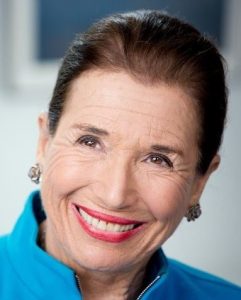 Our guest is a feminist trailblazer who had an inside look at the feminist movement as it progressed from the 1960’s on. Her insights and odes to those who made it possible for women to have virtual integration into all aspects of commerce, the arts and even sports, as we’ve seen, is a far cry from the conditions that existed prior to Betty Friedan and she co-founding the National Organization for Women. Muriel Fox, author of “The Women’s Revolution: How We Changed Your Life”, reminds us that women often could not get mortgages or credit cards on their own, were at the whim of their husbands, even if the behavior would today be considered illegal, at the same time women served longer prison sentences because at the time they were considered ‘harder to rehabilitate’ and the pay inequity was 59 cents on the dollar. Oh, yes, often times job seekers were told whether the position was meant for a woman or a man. We’ve come a long way, baby, but still have much further to go. It’s hard to believe that in 2024 a defining issue of the presidential campaign involves the U.S. Supreme Court’s rescinding a woman’s right to an abortion, unless granted by a state, after a previous court signed on to Roe v. Wade fifty years ago. We will take the long view on today’s episode and discuss prospects for the Equal Rights Amendment that has never become the law of the land.
Our guest is a feminist trailblazer who had an inside look at the feminist movement as it progressed from the 1960’s on. Her insights and odes to those who made it possible for women to have virtual integration into all aspects of commerce, the arts and even sports, as we’ve seen, is a far cry from the conditions that existed prior to Betty Friedan and she co-founding the National Organization for Women. Muriel Fox, author of “The Women’s Revolution: How We Changed Your Life”, reminds us that women often could not get mortgages or credit cards on their own, were at the whim of their husbands, even if the behavior would today be considered illegal, at the same time women served longer prison sentences because at the time they were considered ‘harder to rehabilitate’ and the pay inequity was 59 cents on the dollar. Oh, yes, often times job seekers were told whether the position was meant for a woman or a man. We’ve come a long way, baby, but still have much further to go. It’s hard to believe that in 2024 a defining issue of the presidential campaign involves the U.S. Supreme Court’s rescinding a woman’s right to an abortion, unless granted by a state, after a previous court signed on to Roe v. Wade fifty years ago. We will take the long view on today’s episode and discuss prospects for the Equal Rights Amendment that has never become the law of the land. Each of us honors remarkable women in our own way. Often it’s when we think about what our mothers contributed to our growth and development. In other cases, it’s a teacher or a caregiver. Well the emphatic sex has for generations contributed both to the nurturing part of society’s needs as well as the political and scientific aspects. And while there is still a long way to go to achieve equality of the sexes, expectations and opportunities are rising for women and they are taking full advantage of the moment. Their skew in college today-60/40-suggests that women will be in key positions for generations. Alice Look, an accomplished woman in her own right, with a background in media has joined with Jane Applegate to found the Remarkable Women Project(remarkable womenproject.org)to advance our understanding of the contributions women have, and continue to make, as activists, in the arts, and sciences. A key outgrowth of their project is Alice’s book, “Remarkable Women: Reclaiming Their Stories.” We’ll recount some of them and discuss the growing influence of women in American society.
Each of us honors remarkable women in our own way. Often it’s when we think about what our mothers contributed to our growth and development. In other cases, it’s a teacher or a caregiver. Well the emphatic sex has for generations contributed both to the nurturing part of society’s needs as well as the political and scientific aspects. And while there is still a long way to go to achieve equality of the sexes, expectations and opportunities are rising for women and they are taking full advantage of the moment. Their skew in college today-60/40-suggests that women will be in key positions for generations. Alice Look, an accomplished woman in her own right, with a background in media has joined with Jane Applegate to found the Remarkable Women Project(remarkable womenproject.org)to advance our understanding of the contributions women have, and continue to make, as activists, in the arts, and sciences. A key outgrowth of their project is Alice’s book, “Remarkable Women: Reclaiming Their Stories.” We’ll recount some of them and discuss the growing influence of women in American society.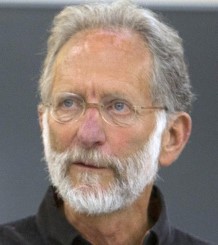 Sure democracy is messy and lots of people feel it’s not working as well as it once did. But all of us born here have never lived under the alternative. Be careful what you wish for if you are taking in, and buying, all the strongman musings of Donald Trump. It’s a recipe for disaster. In a previous podcast one of our guests described a liberal democracy as meaning ‘no boss’. We run things at the city, state and federal level. And we have the power to change things by reforming that which is not working in the best interests of the majority of us. But turning the whole thing over to a man who has hallucinations that he’s the chosen one and wants to pump up a version of Christian nationalism is not the way forward. Joining us to discuss this is Richard Abel, a Professor of Law Emeritus at UCLA and the author of “Defending American Democracy”,a new mini-series of books.
Sure democracy is messy and lots of people feel it’s not working as well as it once did. But all of us born here have never lived under the alternative. Be careful what you wish for if you are taking in, and buying, all the strongman musings of Donald Trump. It’s a recipe for disaster. In a previous podcast one of our guests described a liberal democracy as meaning ‘no boss’. We run things at the city, state and federal level. And we have the power to change things by reforming that which is not working in the best interests of the majority of us. But turning the whole thing over to a man who has hallucinations that he’s the chosen one and wants to pump up a version of Christian nationalism is not the way forward. Joining us to discuss this is Richard Abel, a Professor of Law Emeritus at UCLA and the author of “Defending American Democracy”,a new mini-series of books.